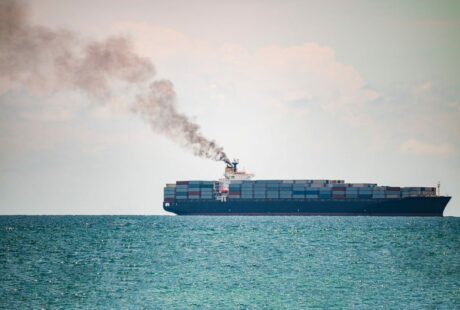- Despite widespread support for keeping warming below 1.5 degrees and for ending ship climate emissions by 2050, IMO fails to agree new goal.
- Russia, Saudi Arabia, UAE, China, and Argentina thwart 100+ country consensus in favour of aligning shipping with Paris Agreement goals.
- Interest in long-term ambition not matched by short-term action.
The outcome of this week’s climate talks at the UN’s shipping agency, the International Maritime Organization (IMO), is yet another blow to efforts to start reducing greenhouse gas emissions from shipping, and to align the sector with the temperature goals of the Paris Agreement.
Even though most of the 175 IMO member states have publicly supported the need for zero emissions or carbon neutral shipping by 2050 (compared to the current IMO target of only halving emissions by 2050) there wasn’t majority support at MEPC77 to adopt the Pacific Islands resolution along these lines – with Brazil, Russia, China, and others opposing the proposal and the EU27 and Norway preferring instead to raise ambition when the initial GHG Strategy is reviewed in two years’ time.
This came only two weeks after the COP26 Climate Summit in Glasgow, which saw broad support for urgent decarbonization of the sector. Science is clear: governments must urgently act to halve shipping emissions by 2030 to keep the 1.5° safe warming limit within reach.
We welcome the support of more countries for a “zero emissions” by 2050 goal, versus a smaller group of countries in favour of “net zero” by 2050. This confirms the approach of the Initial Strategy, that false solutions like “carbon offsets” are not accepted at IMO, and that the goal is firmly in-sector decarbonisation.
John Maggs, Clean Shipping Coalition, said: “Ambition at the IMO has again been held hostage by a small group of countries hell bent on rendering the organisation impotent on the most pressing issue of our age. There was a clear and substantial majority in the room for greater climate ambition but Russia, Saudi Arabia and others ensured that the IMO again failed to move the dial on ship climate action. With every delay the scale of the task gets greater, and ship emissions must halve by 2030 if we are to save 1.5 degrees.”
Lucy Gilliam, Seas at Risk, said: “Those stopping action on climate at IMO are also stopping the organisation from dealing with many other important environmental issues. The blockers have caused dangerous delays to almost every item on the agenda. After 2 years of deferrals, the urgent topic of plastic pollution from shipping was given barely an hour for discussion with every item deferred to the following year. The problem here is a systemic one.”
Posted on: 26 November 2021



